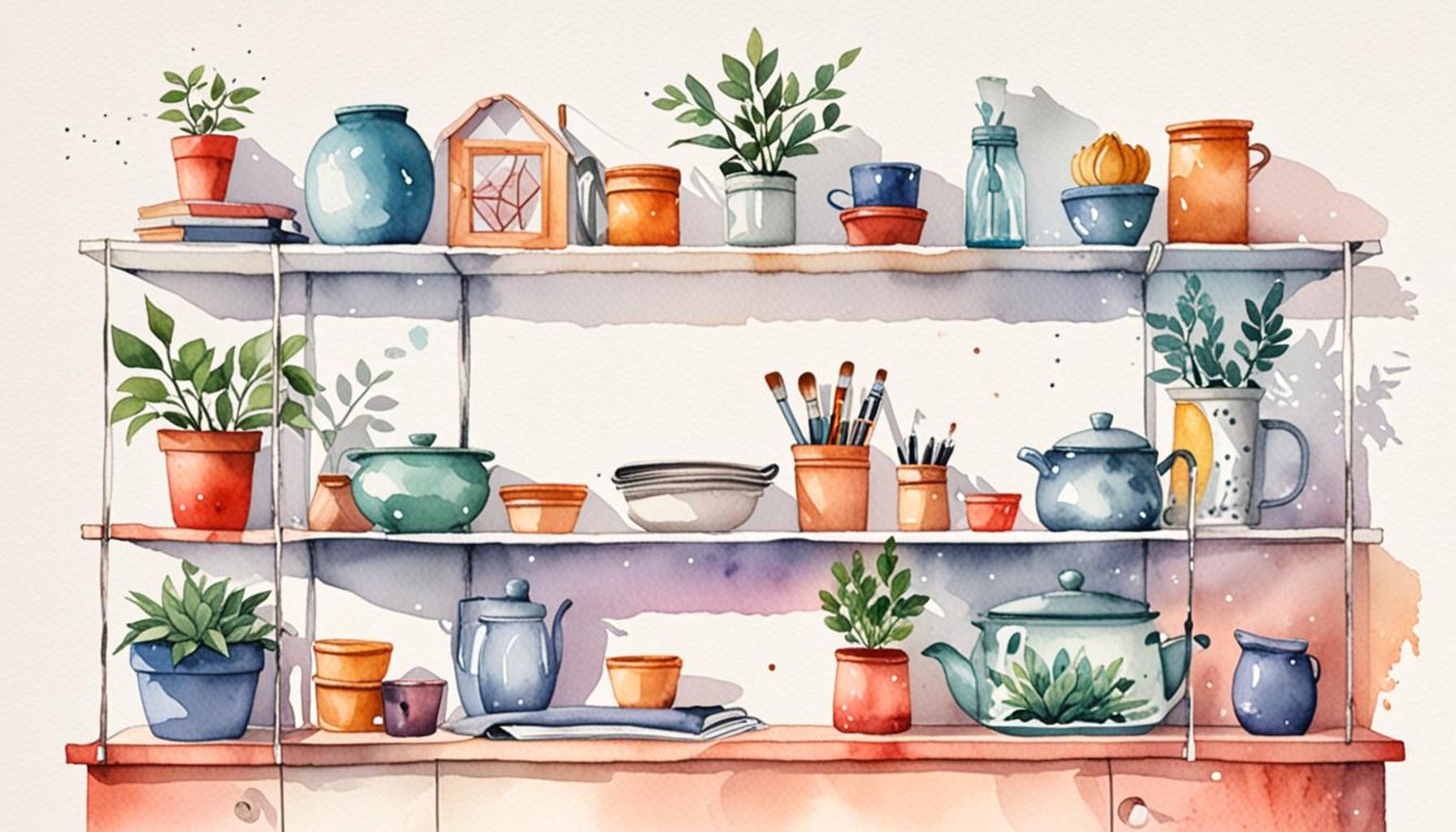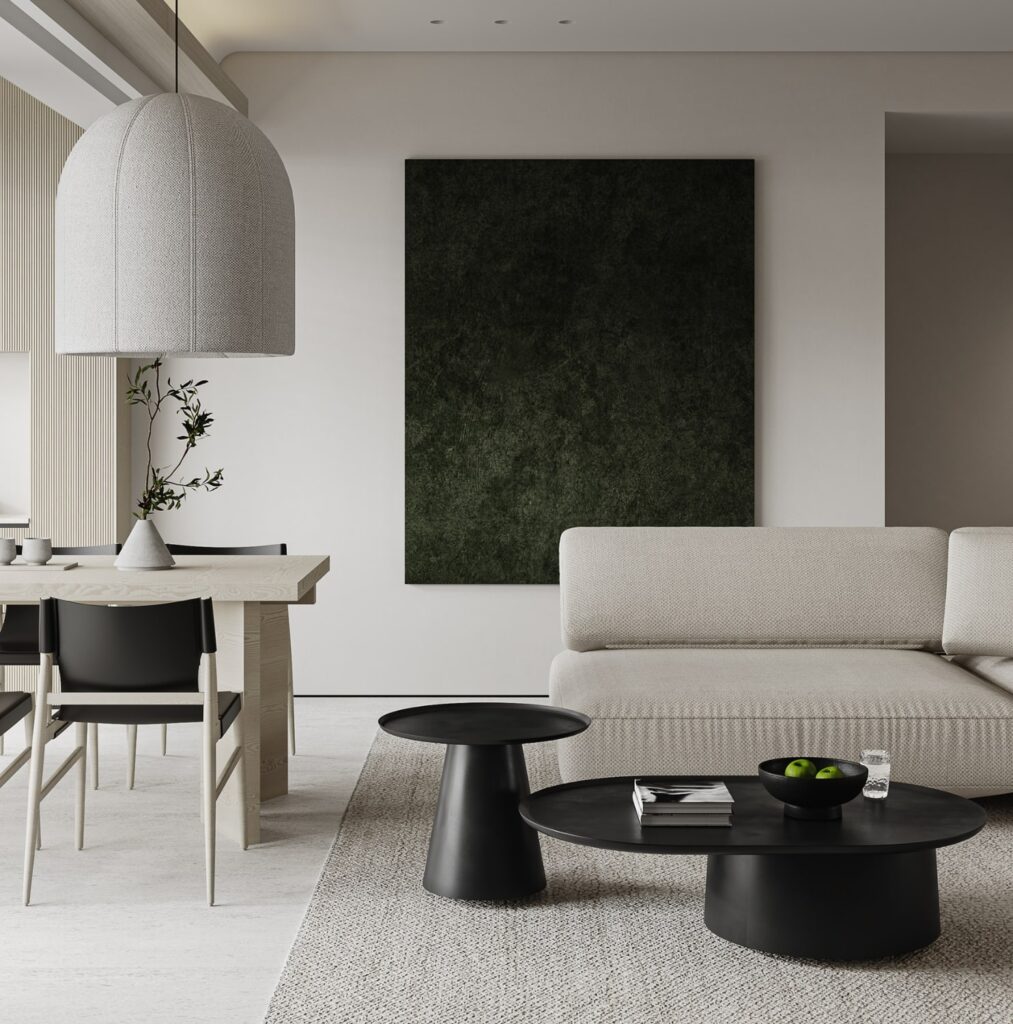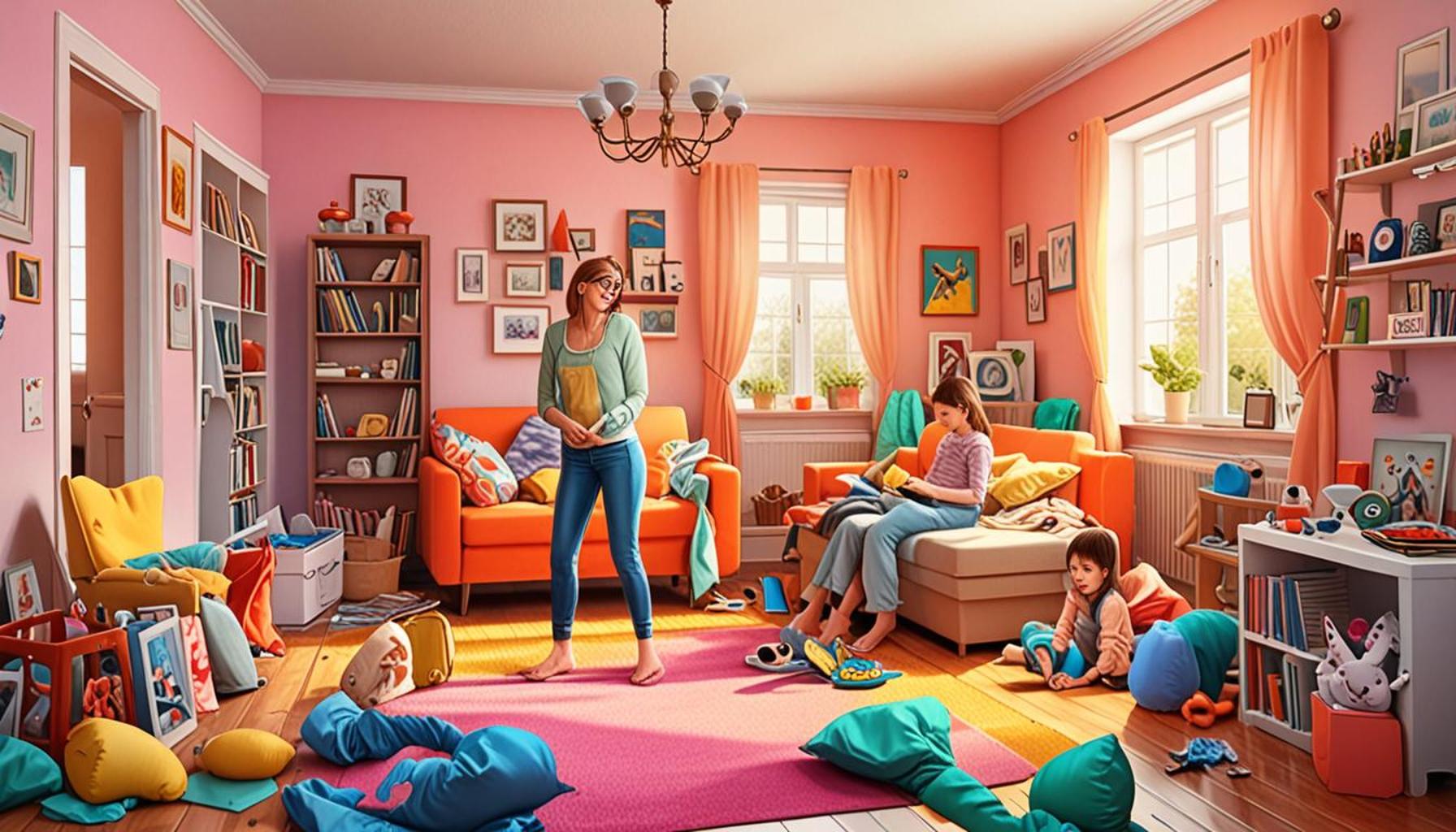The Importance of Reducing Clutter in Minimalist Living: How to Simplify Your Space and Your Mind

Exploring the Essence of Minimalism
In the hustle and bustle of modern life, clutter can permeate our environments and even our minds, often without us noticing its gradual accumulation. We often find ourselves surrounded by an overwhelming number of items that compete for our attention, leading us to feel distracted and unfulfilled. This predicament makes it essential to consider the benefits of reducing clutter. Embracing a minimalist lifestyle is not merely about getting rid of physical objects; it is about finding clarity in simplicity.
Minimalist living prioritizes simplicity in our physical surroundings and mental spaces. When we decide to declutter, several notable benefits emerge:
- Enhance focus: A clear and organized space naturally fosters mental clarity, allowing us to concentrate on tasks without unnecessary distractions.
- Increase productivity: Workspaces with fewer distractions typically result in greater efficiency and creativity, enabling individuals to achieve their goals in a more streamlined manner.
- Improve mental health: Studies show that living in an organized environment can significantly reduce stress and anxiety levels, contributing to overall emotional well-being.
In Nigeria, with its bustling markets and rich tapestry of culture, the temptation to accumulate possessions can be quite strong. The vibrant colors and intricate designs of local crafts and textiles often make it difficult to resist bringing home more items. However, adopting a minimalist lifestyle can shift this perspective, allowing individuals to appreciate fewer items deeply.
- Mindful consumption: Minimalism encourages us to be intentional about the items we introduce into our homes, prompting a thoughtful evaluation of their necessity and value.
- Greater appreciation: By focusing on the quality and functionality of our belongings, we can cultivate a more meaningful relationship with what we own rather than getting lost in excess.
- A stronger connection: Emphasizing experiences over material possessions fosters deeper connections with family, friends, and the community, thereby enriching our lives in more profound ways.
As we dive deeper into the significance of minimalist living, we will uncover practical techniques to simplify our physical environments and approach life with intentionality. These may include strategies such as the “one in, one out” rule, decluttering sessions, and adopting habits that encourage maintenance of a minimalist lifestyle. Join us on this enlightening journey as we seek to discover how achieving clarity can significantly improve our quality of life, transforming chaos into harmony.
SEE ALSO: Click here to read another article

Benefits of Decluttering: Unlocking a Clearer Mind and Space
As we navigate through the maze of daily life, the presence of clutter can often weigh heavily on both our physical surroundings and our mental state. The process of decluttering is a transformative journey that allows individuals to not only simplify their spaces but also gain clarity in their thinking. In a rapidly urbanizing nation like Nigeria, where landscapes are constantly evolving and consumerism is on the rise, it’s essential to recognize the profound impact that reducing clutter can have on our lives.
One of the most immediate effects of decluttering is the creation of a more organized environment. A well-structured space enhances our ability to focus and be productive. When we eliminate unnecessary items, we can create areas specifically designed for certain tasks, leading to an improvement in our efficiency. This is particularly relevant in Nigeria, where many families spend substantial time in multifunctional spaces that serve as living areas, workspaces, and relaxation zones. By simplifying these environments, we can regain control over our time and energy.
Additionally, reducing clutter has been shown to positively influence our mental health. Studies suggest that a tidy environment can lead to lower stress levels, promoting a sense of calm and tranquility. In a busy city like Lagos, where the pace of life can often seem overwhelming, embracing minimalist living can serve as a respite. A decluttered space fosters a welcoming atmosphere that encourages relaxation and mindfulness, allowing us to recharge amidst the chaos that surrounds us.
Practical Strategies for Decluttering
Implementing strategies to reduce clutter is not a one-time event; rather, it is an ongoing practice that requires intentionality. Here are key methods that can facilitate the decluttering process:
- The “One In, One Out” Rule: This principle encourages individuals to remove one item from their home for every new item they bring in. By promoting mindful consumption, it helps maintain a balance and prevent overcrowding.
- Regular Decluttering Sessions: Setting aside dedicated time each week or month to review belongings can help keep clutter at bay. This practice allows for periodic assessment of items and their relevance, ensuring only those that serve a purpose remain.
- Establishing Functional Zones: Organizing spaces by assigning specific functions to different areas can enhance clarity. For example, creating a reading nook in the living room can help distinguish between relaxation and work areas.
While reducing clutter can appear daunting, embracing these methods can lead to a significant shift in both mindset and environment. As we move forward in exploring the world of minimalism, we will delve into the psychological aspects that accompany this lifestyle change, further highlighting the importance of reducing clutter for mental wellbeing and space optimization.
The Psychological Benefits of Minimalism
One of the most profound aspects of reducing clutter is its impact on mental clarity and emotional well-being. Studies have shown that a chaotic environment can lead to increased stress and anxiety. By adopting a minimalist lifestyle, individuals often experience a sense of peace as they simplify their surroundings. The act of decluttering creates a calm atmosphere that fosters focus and enhances productivity.Furthermore, minimalism encourages individuals to engage with their belongings on a deeper level. By retaining only items that add value to their lives, people can cultivate a stronger connection with what they own, leading to a more intentional lifestyle. This conscious approach not only clears space physically but also mentally, allowing for a clearer thought process and a reduction in decision fatigue.
Creating Sustainable Habits
Incorporating minimalism into daily life can pave the way for sustainable habits. By recognizing the impermanence of material possessions, individuals become more mindful consumers. This shift in mindset promotes a cycle of thoughtful purchasing, where each acquisition is met with evaluation and intention, reducing unnecessary acquisitions and waste.Additionally, practicing minimalism encourages regular reflection on one’s lifestyle choices. This introspection not only aids in identifying clutter but also promotes overall personal growth. For those seeking to transform their living space, commitment to minimalism can lead to lasting changes that extend beyond the physical realm.
| Category | Advantages |
|---|---|
| Mental Clarity | Reducing clutter leads to lower stress levels and enhanced focus. |
| Intentional Living | Encourages mindful consumption and deeper connections with possessions. |
Through these insights, it becomes clear that the practice of minimalism offers not just a way to live—it’s a comprehensive approach that nurtures both emotional health and sustainable living. As individuals embrace simplicity, they often find themselves on a journey toward greater fulfillment and purpose.
ADDITIONAL INSIGHTS: Expand your understanding here
Psychological Benefits of Minimalism: Cultivating a Peaceful State of Mind
Shifting towards a minimalist lifestyle extends beyond just organizing physical belongings; it profoundly influences our psychological landscape as well. Reducing clutter is a means to declutter the mind, fostering a serene environment that cultivates mental clarity. In the hustle and bustle of urban centers like Abuja and Lagos, the notion of mental space often gets overshadowed by external chaos. Embracing minimalism unearths a pathway to mental wellness that resonates deeply with the complexities of modern life.
One science-backed insight regards the way environmental stressors can exacerbate feelings of anxiety. Research indicates that navigating through disorganized spaces can heighten stress levels, leading to difficulties in concentrating and managing daily challenges. This is particularly relevant for Nigerians, who often juggle multiple commitments, from work responsibilities to family obligations. By adopting minimalist practices, individuals can significantly mitigate these stressors, transforming their surroundings into sanctuaries of peace and focus.
The transformation is not solely about physical space; it produces a ripple effect on decision-making and overall productivity. When clutter is minimized, the brain experiences reduced distractions, allowing for better decision-making capabilities. A study from the University of California found that individuals working in organized environments were able to focus better and perform tasks more efficiently compared to those in cluttered settings. This discovery has implications for the workspace configurations found in bustling Nigerian cities, where organizations can thrive with simplified and streamlined environments.
Mindfulness and Minimalism: A Powerful Connection
Mindfulness—a concept central to mental well-being—aligns closely with the principles of minimalism. Practicing mindfulness involves being fully present in the moment, and what better way to nurture this state than through reducing clutter? Clutter can distract from the present and invoke a sense of busyness that leads to emotional fatigue. A decluttered space, on the other hand, encourages reflection and serves as a constant reminder to engage with the moment.
For example, a simple practice of observing one’s home environment can lead to a greater appreciation of the present. Families in Nigeria can create spaces that allow for meaningful interactions, reducing the need for excess items that distract from quality time together. When excess is removed, family gatherings can become more intentional, fostering deeper connections among loved ones.
Community Benefits of Embracing Minimalism
The positive influence of minimalism does not stop at the individual level; it has the potential to impact communities as well. As more people in Nigeria adopt a minimalist mindset, there may be a collective shift in values toward sustainability and responsible consumption. The act of sharing, recycling, and donating excess items can promote a culture of community engagement that prioritizes harmony over materialism. Local charities and thrift shops often thrive on donations, which can circulate within the community, providing support to those in need.
This collaborative spirit can lead to a rich tapestry of relationships as neighbors come together to support one another, fostering a sense of belonging. The essence of minimalism encourages a return to simplicity, where shared experiences and community ties outweigh the importance of material possessions. As people in Nigeria embrace this lifestyle, the potential for social transformation becomes significant, emphasizing the value of relationships over things. The journey toward a minimalist lifestyle, therefore, not only refreshes our living environments but also rejuvenates our minds and strengthens community bonds.
LEARN MORE: This related article may interest you
Conclusion: Embracing Minimalism for a Fuller Life
In a world increasingly defined by chaos and consumption, the journey towards minimalist living emerges as a beacon of hope, guiding individuals to reclaim their mental space and physical environments. By understanding the profound impact of reducing clutter, we peel back the layers of distraction and discontent that so often cloud our lives, particularly in bustling urban settings like Nigeria’s vibrant cities.
The psychological benefits of minimalism extend far beyond aesthetics; a less cluttered space facilitates a clearer mind, enabling better focus and decision-making. This transformation leads to a ripple effect, enhancing productivity and fostering emotional well-being. By cultivating an environment that emphasizes simplicity and mindfulness, individuals can engage more deeply in both personal and communal relationships, creating spaces that encourage intentional interactions over material excess.
Moreover, the community aspect of minimalism fosters a culture of sharing, sustainability, and compassion, which resonates deeply within Nigerian society. As the principles of minimalism take root, they not only prepare the ground for personal growth but also sow seeds of social change. The act of simplifying one’s life becomes a collective movement, enhancing community ties and building a support system that prioritizes connections over possessions.
Ultimately, reducing clutter is an invitation to reflect on what truly matters. It is a call to action for those navigating the fast-paced modern world to create a living space that mirrors their values and aspirations. By adopting minimalism, individuals can find a pathway not only to a more organized home but also to a more fulfilling life, where peace of mind and community thrive hand in hand. As we embrace this lifestyle, let us inspire each other to live intentionally, free from the burdens of excess, and filled with the richness of authentic experiences.


